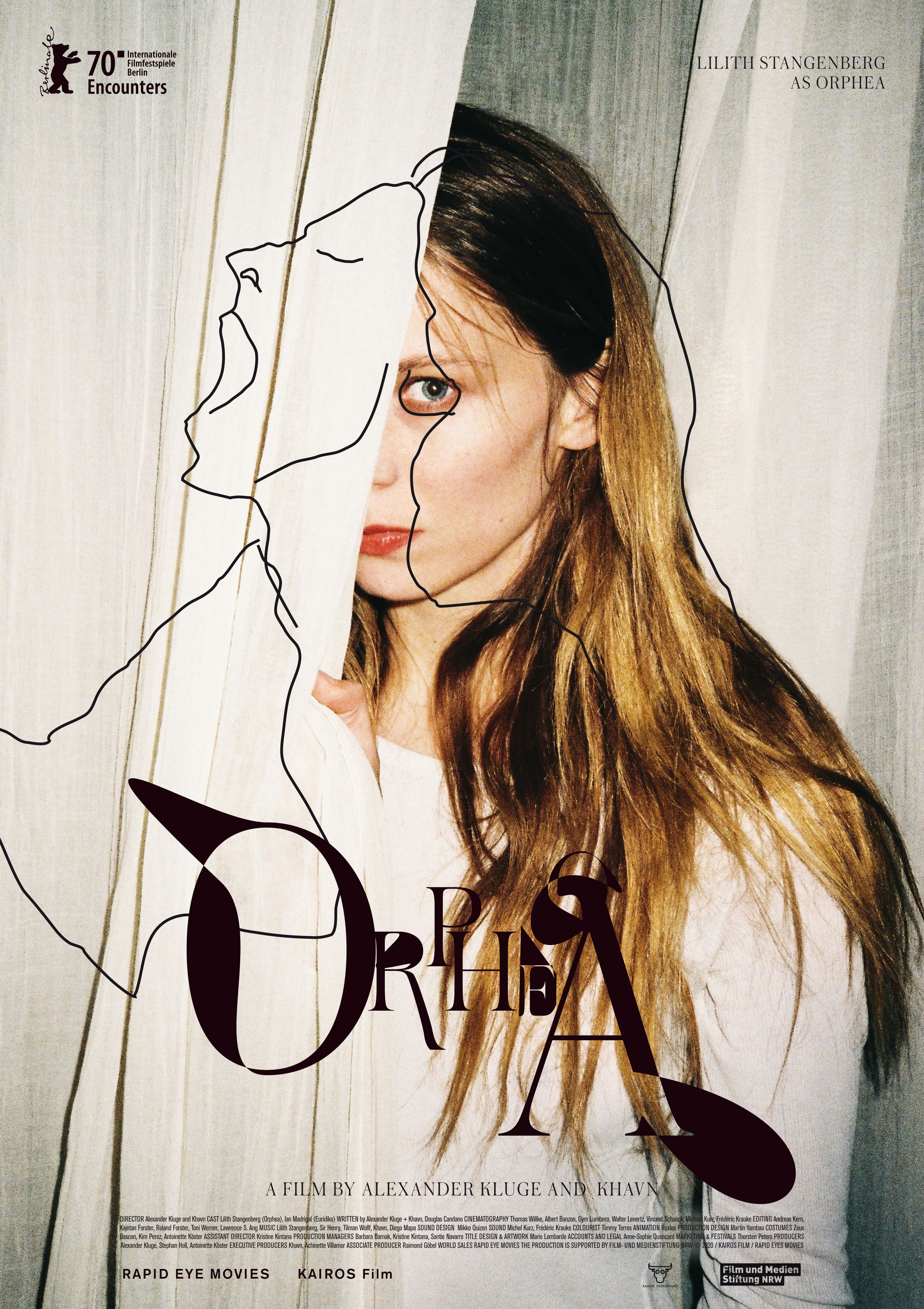| Regie |
Alexander Kluge & Khavn |
| Darsteller |
Lilith Stangenberg, Ian Madrigal |
| FSK |
12 |
| Produktionsland |
Deutschland |
| Jahr |
2019 |
| Verleih |
Rapid Eye Movies |
| Webseite |
http://www.rapideyemovies.de |
| Kinostart |
22.07.2021 |
| Länge |
01:39:54:23 min |
| Audioformat |
— |
| Untertitel |
Deutsch |
| Bildformat |
— |
| Framerate |
25 |
| 2D/3D |
2D |
Der Film Orphea ist eine Kooperation zwischen dem deutschen Filmemacher Alexander Kluge dem philippinischen Filmemacher Khavn. Im Mittelpunkt des Musikfilms: Lilith Stangenberg als Orphea.
Der antike Mythos vom Musiker Orpheus, der seine Geliebte aus der Unterwelt zurückholen will und mit der Macht der Musik den Höllenhund bezwingt, ist älter als 2.000 Jahre. Als Khavn, Kluge und das ganze Team auf den Filmfestspielen nach der Premiere des kooperativen Films, HAPPY LAMENTO in Venedig zusammensaßen, kam die Idee auf, diesen Stoff zu verfilmen. Man fand es zuggleich traurig, dass Orpheus seine Eurydike in allen Wiederholungen dieses Mythos nicht wirklich ans Tageslicht holen konnte, und es war allen unverständlich, dass die natürliche Geste, der Blick zurück zur Geliebten, ewig mit deren Tod bestraft werden sollte. Man muss, einen Geschlechterwechsel riskieren. Vielleicht kann eine ORPHEA „ihren Liebsten tatsächlich aus der Hölle holen“.
Die Musik ist eine Kunst aus der Rippe Evas.
In Manila, Khavns Heimat, geht Lilith Stangenberg durch eine Hölle. Während sie leidenschaftlich nach ihrem Eurydiko sucht, folgt er ihr bereits auf dem Fuße. Zur gleichen Zeit in Mitteleuropa: Orphea arbeitet „Im Namen der Revolution“ nicht nur für die Befreiung ihres Geliebten sondern für die Wiederkehr aller Toten: Für die Utopie der Apokatastasis panton. Diese Utopie passt genau so zum Silicon Valley heute, wie sie zum Programm der Revolution von 1917 gehörte.
Nichts in Orphea ist gesichert, alles hier ist Rhythmus. Orphea hat die antike Tragödie mit ihren ehernen Maßstäben hinter sich gelassen: Im Glauben an die Mammute der Phantasie, auf die Macht der Musik und die Liebesfähigkeit, die allem Kino zugrunde liegt.
-------------------------------------------
EN
The film Orphea is a collaboration between German filmmaker Alexander Kluge and Filipino filmmaker Khavn. At the center of the music film: Lilith Stangenberg as Orphea.
The ancient myth of the musician Orpheus, who wants to bring his beloved back from the underworld and conquers the hound of hell with the power of music, is more than 2,000 years old. When Khavn, Kluge and the whole team sat together at the film festival after the premiere of the collaborative film, HAPPY LAMENTO in Venice, the idea of filming this material came up. At the same time, they found it sad that Orpheus could not really bring his Eurydice to light in all the repetitions of this myth, and it was incomprehensible to everyone that the natural gesture of looking back at the beloved should be eternally punished with her death. You have to risk a change of gender. Perhaps an ORPHEA can actually “get her beloved out of hell”.
Music is an art from the rib of Eve.
In Manila, Khavn's homeland, Lilith Stangenberg is going through hell. While she passionately searches for her Eurydiko, he is already hot on her heels. At the same time in Central Europe: Orphea works “In the name of revolution” not only for the liberation of her lover but for the return of all the dead: For the utopia of apokatastasis panton. This utopia is just as appropriate to Silicon Valley today as it was to the program of the 1917 revolution.
Nothing in Orphea is certain, everything here is rhythm. Orphea has left ancient tragedy with its iron standards behind: Believing in the mammoths of the imagination, in the power of music and the capacity for love that underlies all cinema.























